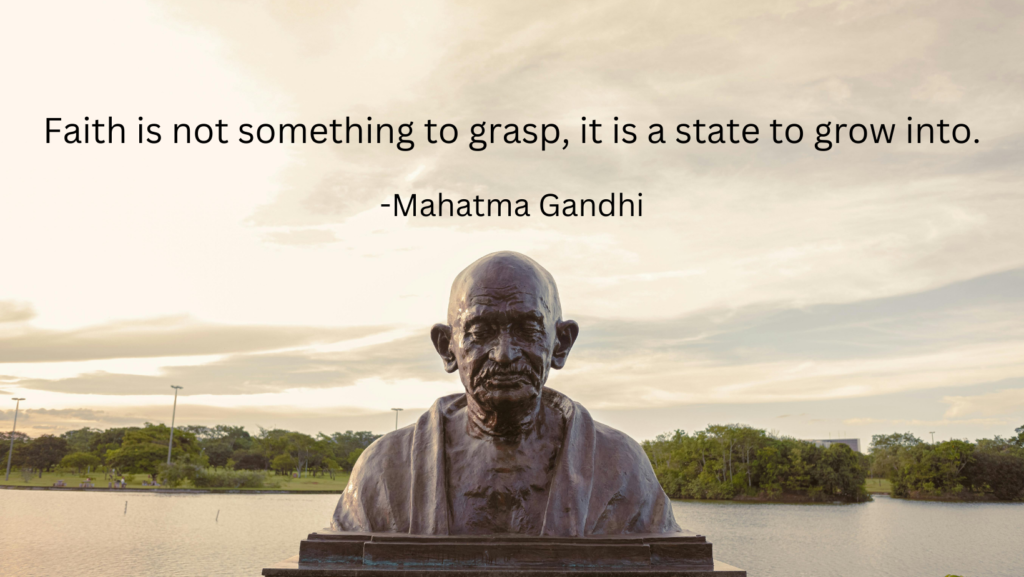Introduction
In today’s fast-paced world, people often feel caught between the demands of logical, rational thinking and a desire for deeper spiritual fulfillment. This struggle, often seen as “rational thinking vs. spirituality,” can be particularly challenging for people aged 25-40 who are balancing career ambitions, relationships, and personal growth. Finding a balance between rational thinking and spiritual belief can offer a more holistic approach to life, helping individuals make well-rounded decisions, foster resilience, and enhance their sense of purpose. This guide provides actionable insights for harmonizing these seemingly opposing perspectives, supporting a life enriched by both logic and spirituality.
Why is Balancing Rational Thinking and Spiritual Belief Important?
Combining the strengths of science and spirituality creates a foundation for a well-rounded, meaningful life. Rational thinking supports decision-making, problem-solving, and managing everyday tasks, while spiritual beliefs provide a sense of purpose, comfort, and connection to something greater. Achieving this balance can:
- Improve mental and emotional well-being.
- Strengthen relationships by fostering empathy and self-awareness.
- Enhance decision-making by blending logic with intuition.

This idea resonates strongly in the journey of balancing rationality with spirituality, showing that each is limited without the other.
Research from the American Psychological Association shows that integrating spiritual practices with rational approaches can significantly increase emotional resilience and help individuals handle life’s complexities. This harmony of mind and spirit ultimately promotes greater well-being and a balanced, fulfilling life.
Understanding Rational Thinking and Spiritual Belief Separately
- Rational Thinking: Rationality focuses on using logic, critical thinking, and evidence-based decision-making. In this process, facts are assessed, biases minimized, and reasoning applied objectively. This kind of critical thinking, even for spiritual people, provides structure and clarity, helping to navigate daily challenges efficiently.
- Spiritual Belief: Spirituality is often subjective, deeply personal, and varies greatly from person to person. It might include belief in a higher power, mindfulness practices, or a focus on finding inner peace. These beliefs offer guidance, comfort, and a sense of purpose, helping people cope with uncertainty and stress in ways that science alone might not address.
Studies reveal that spirituality can have measurable benefits on mental health, such as reducing anxiety and increasing life satisfaction. For example, a 2018 study published in Psychology of Religion and Spirituality found that individuals who engaged in spiritual practices experienced lower stress levels and greater overall well-being.
Identifying Challenges and Misconceptions
Misconceptions
- Rationality Excludes Spirituality: A common misconception is that logic and faith cannot coexist. This belief may cause people to choose one over the other, leading to an imbalanced outlook. In reality, many aspects of spirituality can complement rational thinking.

This suggests that rationality and spirituality can reveal different yet valuable insights about our lives.
For instance, practices like mindfulness, while grounded in spirituality, have been proven scientifically to benefit mental health, highlighting that spirituality doesn’t always conflict with logic.
- Spiritual Belief Requires Disregarding Science: Another misconception is that being spiritual means ignoring scientific evidence. However, practices like meditation, rooted in various spiritual traditions, are now backed by research showing positive effects on brain function and mental health.
- Spirituality Leads to Irrational Decisions: Some believe spirituality hinders practical decision-making. But spiritual practices like prayer or reflection can help people make balanced decisions by promoting patience, empathy, and a greater understanding of oneself and others.
Challenges
- Balancing Work and Personal Beliefs: People often feel pressured to leave spirituality at the door in professional environments. However, blending spirituality, like mindfulness or gratitude practices, into the workday can improve focus and resilience without compromising professional goals.
- Managing Social and Cultural Expectations: Some may struggle to maintain spiritual beliefs due to cultural expectations or family pressures to conform to a purely rational worldview. Learning to respect both rationality and spirituality and to stand confidently in one’s balanced beliefs can be challenging but rewarding.
- Balancing Immediate Reactions with Spiritual Reflection: It can be tempting to react quickly in the fast-paced modern world. Balancing the impulse for logical decision-making with spiritual patience allows for deeper, more thoughtful responses.
By acknowledging these challenges and working through misconceptions, individuals can create a mindset where rationality and spirituality enhance, rather than conflict with, each other.
Strategies for Balancing Rational Thinking and Spiritual Belief
Self-Reflection Techniques
Balance begins with self-awareness. Practices like journaling or mindfulness help clarify core beliefs and values, making it easier to reconcile logical thinking with spiritual beliefs. By journaling daily, you can track moments when you lean heavily on logic or spirituality and make adjustments as needed.
Education and Knowledge Expansion
Explore both spiritual practices and scientific principles. Studying concepts such as the science of mindfulness and meditation demonstrates that spirituality and science don’t have to be opposites. A broader knowledge base fosters respect for both viewpoints and encourages new insights into how they can complement each other in life.
Critical Examination of Beliefs
Regularly assessing your beliefs objectively ensures they align with your current needs and goals. Critical examination can help uncover outdated beliefs that may no longer serve you, creating a space for “inner peace science” that aligns with both logic and spiritual growth.
Integrating Science and Spiritual Practices
Scientific studies show that practices like meditation benefit both rational thinkers and spiritual individuals alike. For example, meditation has been proven to improve focus, reduce stress, and support overall health. Viewing spiritual practices as tools for well-being makes them compatible with a rational mindset, providing “science-backed spirituality” that integrates seamlessly into daily life.
Case Studies and Real-Life Examples
Case Study 1: A Tech Professional’s Balance
John, a software engineer in his 30s, experienced high stress due to his demanding career. Although he believed in logical problem-solving, he decided to explore mindfulness techniques—a form of practical spirituality. Initially skeptical, John discovered that meditation significantly reduced his stress and improved productivity. John’s story demonstrates that even the most logic-oriented thinkers can benefit from adopting science-backed spiritual practices.
Case Study 2: A Psychologist’s Spiritual Exploration
Sarah, a psychologist, approached spirituality as a tool for fostering empathy and compassion. She practiced gratitude and mindfulness daily, finding it helped her connect more authentically with her clients. Sarah’s experience shows that a science-backed approach to spirituality can benefit professionals without compromising logical, evidence-based methods.
Case Study 3: A Business Leader Embraces Mindfulness
Michael, a CEO of a mid-sized company, faced constant high-stakes decision-making. Feeling burned out, he incorporated mindful breathing exercises before major decisions. While maintaining his data-driven approach, he found the pause allowed him to make calmer, more empathetic choices, positively impacting his team and business outcomes. Michael’s case highlights how mindfulness, a spiritual practice with scientific support, can enhance rational decision-making.
Case Study 4: A Teacher Incorporates Meditation into Logical Learning
Emily, a high school teacher, felt that her students were overwhelmed and distracted. She introduced short meditation sessions at the start of each class. Students reported feeling more focused, and academic performance improved. By blending spiritual practices with structured learning, Emily helped her students experience the value of balance firsthand.
These case studies illustrate how individuals from various fields achieve balance by integrating spiritual practices into rational frameworks, enhancing both personal well-being and professional effectiveness.
Action Plan for Daily Balance
Engaging in practices that incorporate both rationality and spirituality daily can improve overall well-being and productivity. Here are some actionable tips for building this balance into daily life:
- Mindful Mornings: Start each morning with a few minutes of deep breathing or quiet reflection. This mindful start can set a calm and focused tone for the day, benefiting both logical tasks and spiritual clarity.
- Daily Goal-Setting with Reflection: When setting daily goals, choose both a rational and a spiritual goal. For example, a rational goal could be to finish a specific task, while a spiritual goal might be practicing gratitude. Setting goals from both perspectives keeps both aspects integrated.
- Midday Check-In: Incorporate a five-minute pause mid-day to reflect on the balance you’re achieving. Are you leaning too much on logic and feeling stressed, or on spirituality and feeling ungrounded? Adjust as needed.
- Evening Reflection: In the evening, reflect on your experiences from the day. Journaling for five minutes about your thoughts and feelings provides insight into where your balance is thriving and where it may need adjustments.
- Weekend Reflection Routine: End the week with a dedicated reflection session. Review your week and note moments where rational thinking and spiritual beliefs supported you. This practice builds self-awareness and reinforces a balanced mindset.
This practical approach creates daily engagement, allowing you to stay balanced and adapt as needed for a more enriched, peaceful life.
Conclusion
Balancing rational thinking with spiritual belief is an ongoing journey of self-discovery and growth. By blending logic with spirituality, you can lead a more resilient and fulfilling life. The steps provided help you maintain balance daily, fostering both inner peace and logical clarity. Embrace this guide as a foundation for exploring and nurturing both rational and spiritual dimensions in your life.

With continuous practice, you’ll find harmony between these two aspects, enjoying the best of both worlds.
Question for the Reader: How do you currently balance logic with spirituality in your own life, and what challenges do you face in achieving this balance?

